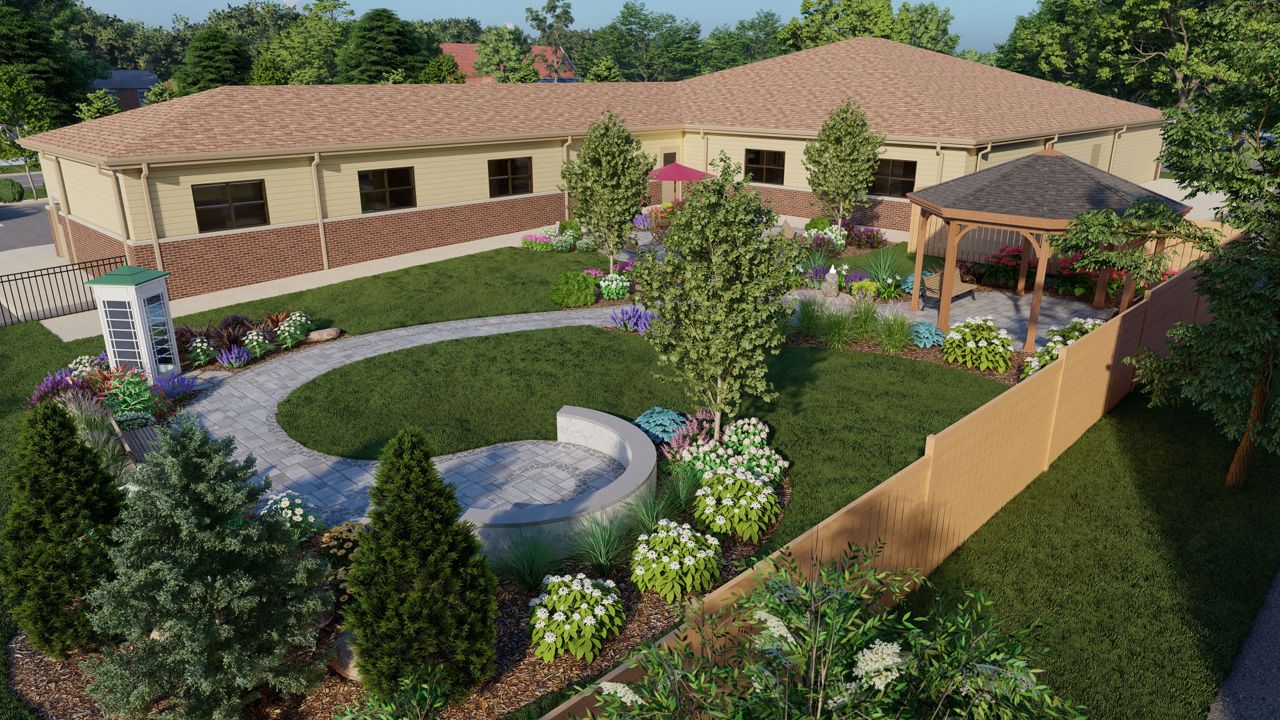AKRON, Ohio — RN Holly Klein became troubled when she realized many Akronites were experiencing their final days alone, sometimes in squalid surroundings.
As a home-hospice nurse working in the field, Klein saw first-hand the poor conditions many experienced.
“Though we were in Akron, I couldn't believe people were living the way they were living, in unsafe conditions. Or we took care of people in homeless shelters, in motels,” Klein said. “Our loved ones, you know? Not the best environment and people were dying alone. I just always wondered: Were they afraid? Were they in pain?”
Klein decided to try to make a difference for as many people as she could. In 2016, she partnered with fellow hospice-nurse Cindy Browning to begin planning to build a facility in which indigent and homeless residents could live their final days in dignified conditions, she said.
The community rallied behind the effort and a groundbreaking for the 6,370-square-foot facility took place in Akron’s North Hill neighborhood in September, on land donated by Summa Health System, Klein said.
Klein, who will serve as executive director, named the facility Grace House, which means gift, she said.
There is no other facility like Grace House in the Greater Akron area, she said. It’s modeled after those in the Omega Home Network, a national nonprofit that works to build facilities that reflect the communities that create and support them.
With operating costs estimated at $360,000 per year, Grace House will not receive local, state or federal funding, but instead rely on grants and donations from individuals, foundations and businesses, organizers said.
Grace House will provide 24-hour care, as well as pet, music and art therapy, and vigil companions. In addition to patient care, it will offer educational opportunities for area healthcare students and professionals to learn about end-of-life care, Klein said.
To be considered for Grace House, patients must be enrolled in a hospice program, be alone or without a caregiver, and be under-insured or uninsured, Klein said. All services will be free, relieving occupants of financial worries.
Grace House is planned to open in the spring, offering six residences, she said. A capital campaign to pay for construction of Grace House and two years of operating funds has reached 80% of the total $3.5 million needed, Klein said.
The original goal was $2.8 million, but when building-material costs shot up during the height of the pandemic, so did the campaign goal.
“That’s a big jump, but we are confident we are going to hit our $3.5 million mark by the time our doors open,” she said. “Our fundraising is going fantastic.”
Grace House is being built atop the hill at Howard Street, near St. Thomas Hospital. Designs for the facility include memorial gardens with pathways, a gazebo and pavilion, a spiritual center and private, home-like residences, with bedroom, dining room and living room.
“It was important for it to be a home, and to blend in with the neighborhood,” Klein said.
The rooms will have hospital beds, but each one will be individualized to the occupant, as much as possible, she said. The landscaping and courtyard are designed to offer views of nature, which Klein said was also important. Administrative offices also will be on-site.
Naming opportunities are available and can be viewed on the Grace House website.
One unique feature of Grace House will be a Wind Phone, she said, which is a concept that arose following the March 2011 tsunami that killed thousands in Japan.
After the tsunami, a man in northeast Japan installed on his property a phone booth with a rotary dial to enable people to connect with friends and family members who were swept away with the ocean. Today, the Wind Phone has become a destination for both grief-stricken locals and people from miles away.
At Grace House, a Wind Phone will be installed in the gardens. “For people to have a little memorial, a remembrance,” Klein said.
Grace House will begin hiring in the next few months, including an executive assistant. Caregivers will be hired about 30 to 45 days before the opening, she said.
Grace House also seeks volunteers, who can apply on the Grace House website to help with administrative, care, support and household services
“We’ll need an army of volunteers,” Klein said.
To learn more or to make a donation, visit the Grace House website.



